What happens when graveyard spaces run out?
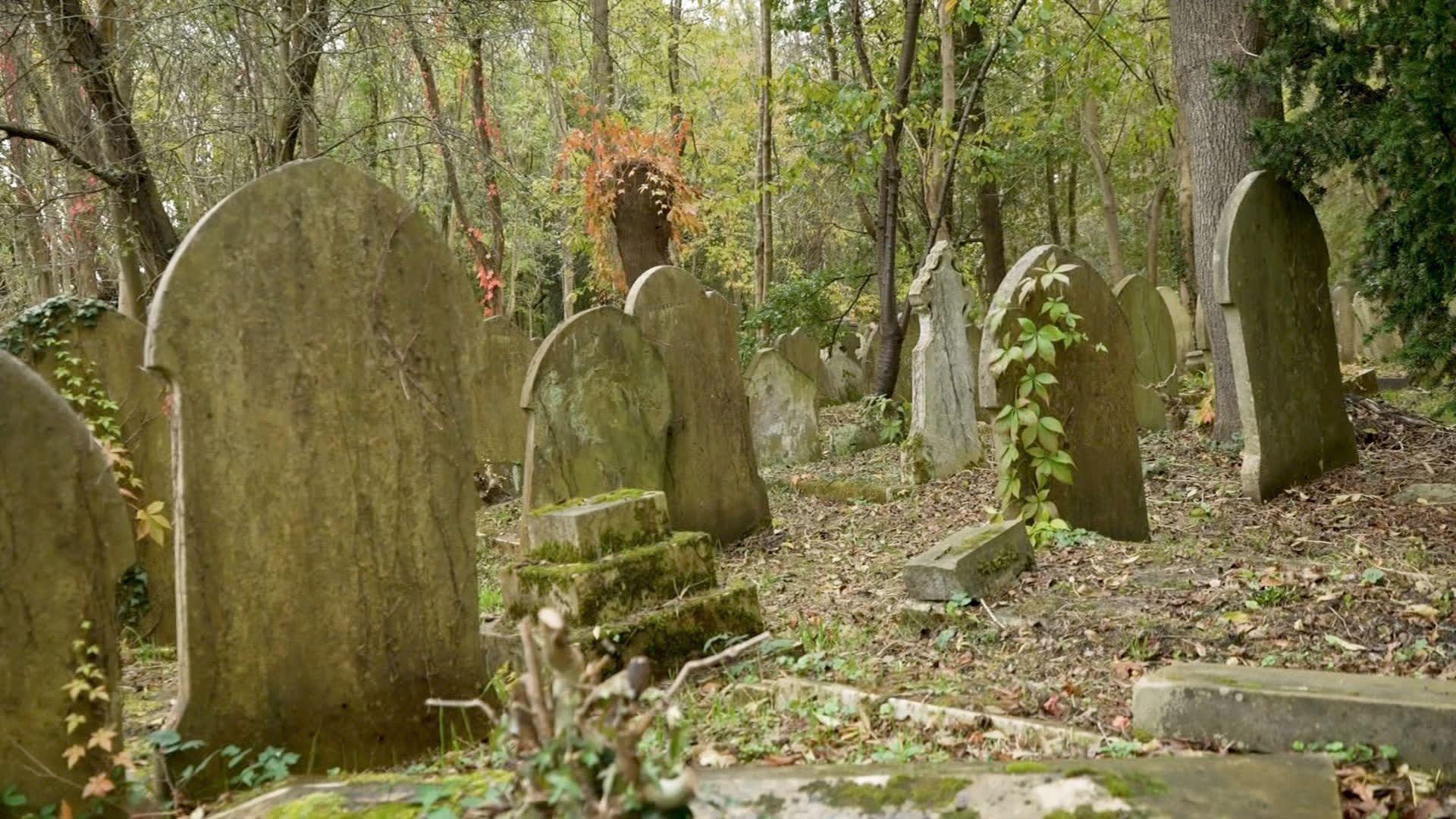
What will happen when graveyards are full and there is no room to bury new bodies?
- Published
What do Karl Marx, George Michael and Michael Faraday have in common?
They are buried in Highgate Cemetery.
It is one of the most famous burial grounds in the country, with 170,000 people buried in 53,000 graves.
But what happens when space runs out?
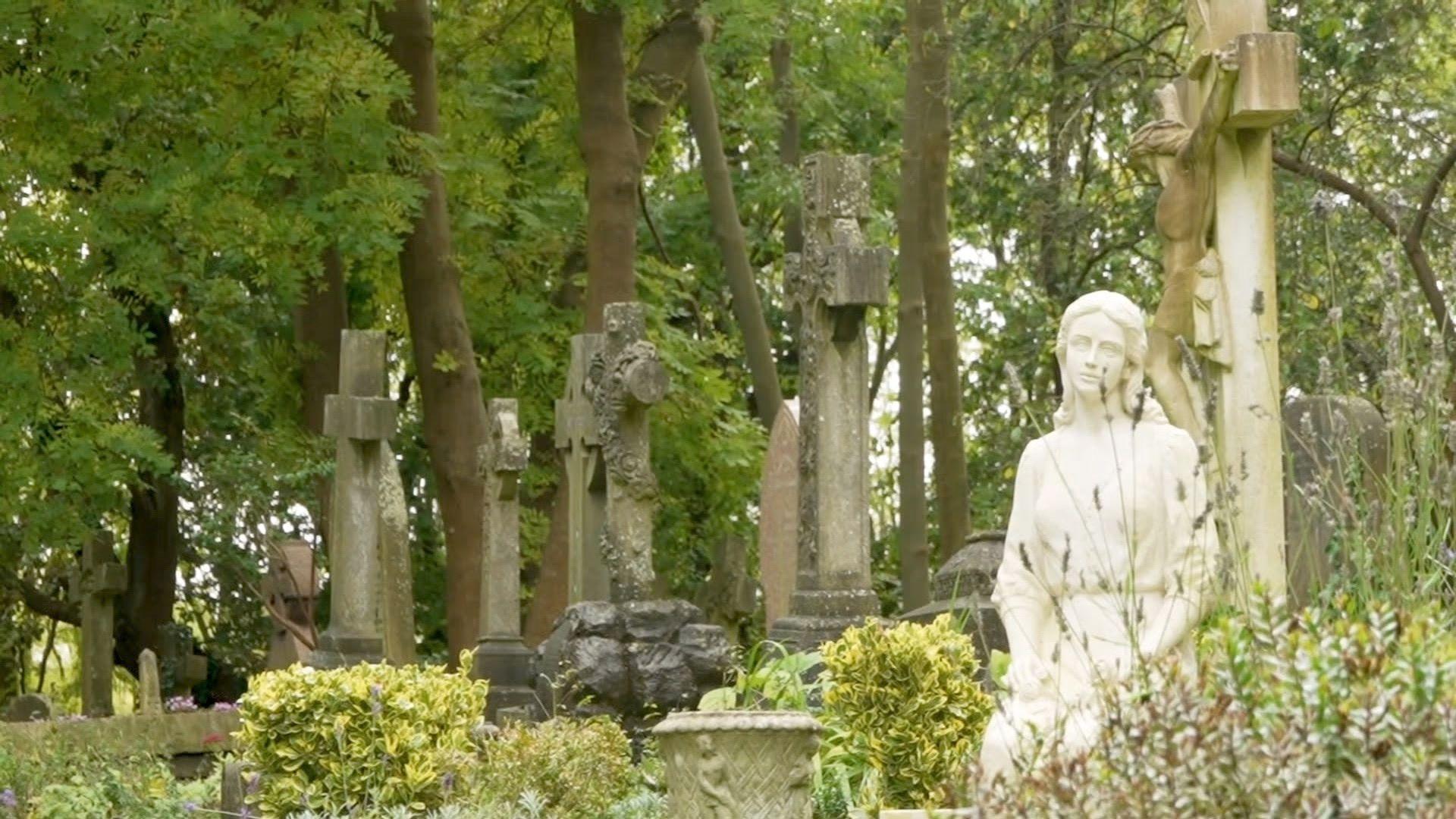
Existing graves could be reused to address burial space shortages
This is something being discussed by the Law Commission - an independent body which reviews legislation in England and Wales - which is proposing a widespread change in burial laws.
It could result in existing graves being reused to address burial space shortages.
According to current legislation, it’s illegal to disturb a grave.
However, in 2022 Highgate Cemetery went to parliament, external to get the right to reuse graves that have not have anyone buried in them for 75 years.
The railway trip where only some passengers returned
- Published17 September 2023
Ian Dungavell, the chief executive of Friends of Highgate Cemetery Trust, said: "There are a lot of safeguards for grave owners.
"If a relative objects, that grave would be protected for 25 years."
He also said: "Because we're a heritage cemetery, we don't want to destroy what people come to see.
"Elegant graves, with a nice monument, would be left as they are.
"There are many graves where there is no monument, so no heritage is destroyed."
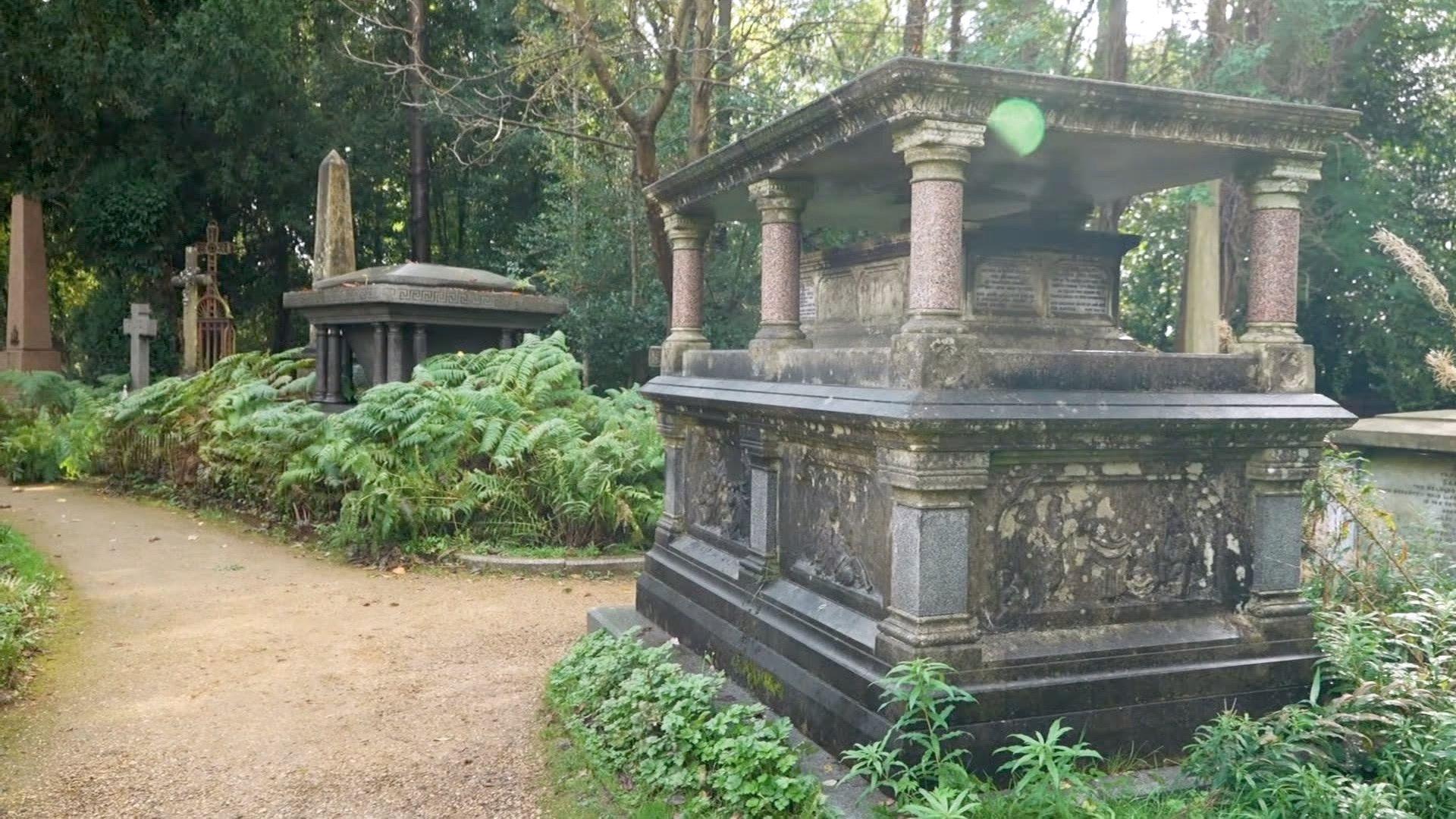
London could run out of grave space in less than 30 years
Grave reuse has always been allowed in Church of England graveyards, as well as with special acts of parliament.
Professor Nick Hopkins, law commissioner for property, family and trust law said: "Some of the laws date back to the 1850s, or earlier, so it’s time they were reviewed.
"There was a government study in 2007, which estimated we’d run out of grave space in around 30 years."
He also said London would run out of grave space sooner because of the high population - and that a plan needs to be put in place now to ensure grave space remains available in the future.
The appeal of tombstone tourism
- Published7 May 2017
Magnificent seven
In 1800 the population of London was one million.
By 1831 it had risen to almost two million, according to the census.
Inner city graveyards were struggling to cope with the number of burials.
Like Kensal Green, Highgate Cemetery - which opened in 1839 - formed part of a plan to provide seven modern cemeteries just outside central London.
They are now referred to as the "Magnificent Seven".
They are Victorian gothic, garden cemeteries:
Highgate Cemetery
Brompton Cemetery in West Brompton
Abney Park Cemetery in Stoke Newington
Kensal Green Cemetery
Nunhead Cemetery
West Norwood Cemetery
Tower Hamlets Cemetery
The headstones with unusual stories to tell
- Published2 July 2017
Until a change in the law, individual cemeteries need to apply to parliament for grave reuse.
Like Highgate Cemetery, another London cemetery plans to submit a private bill in November.
According to the General Cemetery Company (GCC), which runs Kensal Green Cemetery, burial space there will run out in about 10 years' time, external.
The north-west London cemetery opened in 1833 and was the first commercial cemetery in the capital.
The need for large cemeteries was stimulated by the increase in population in London and the inadequate space provided by existing cemeteries and churchyards.
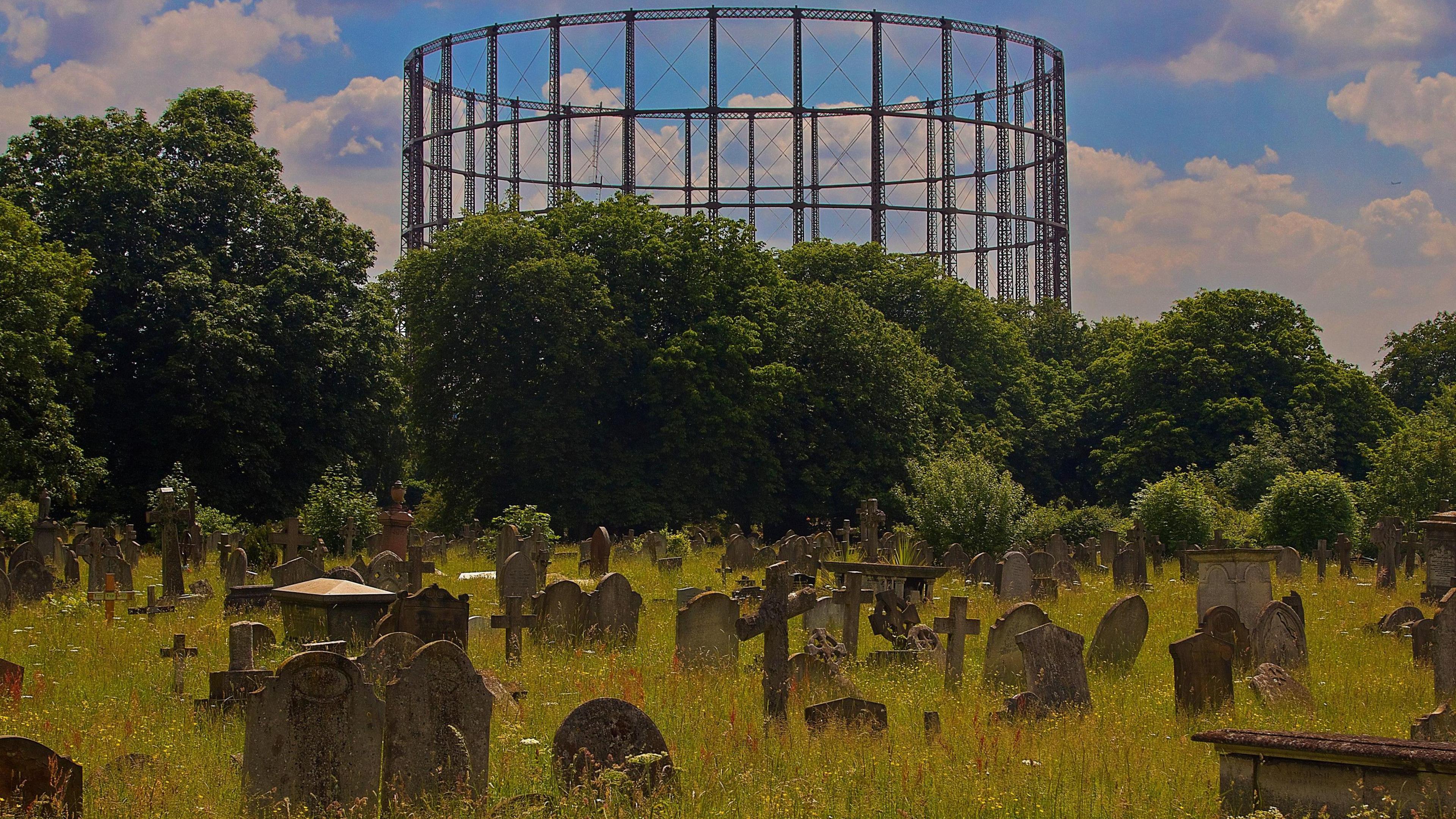
Kensal Green Cemetery was the first of the 'Magnificent Seven'
The GCC said they are looking into the grave renewal process.
It would involve reclaiming burial rights that have been granted but never used, or only partially used, and re-using grave spaces that have been previously used.
Peter Humphries, head of planning at the GCC said: "It's about preserving the future, preserving and restoring a place to be used by the community and by people as a cemetery and crematorium".
Consultation on the proposals to change the law is open until 9 January 2025.
You can watch the latest edition of Politics London in full on BBC iPlayer
Listen to the best of BBC Radio London on Sounds and follow BBC London on Facebook, external, X, external and Instagram, external. Send your story ideas to hello.bbclondon@bbc.co.uk, external
Related topics
Related internet links
- Published3 October 2024
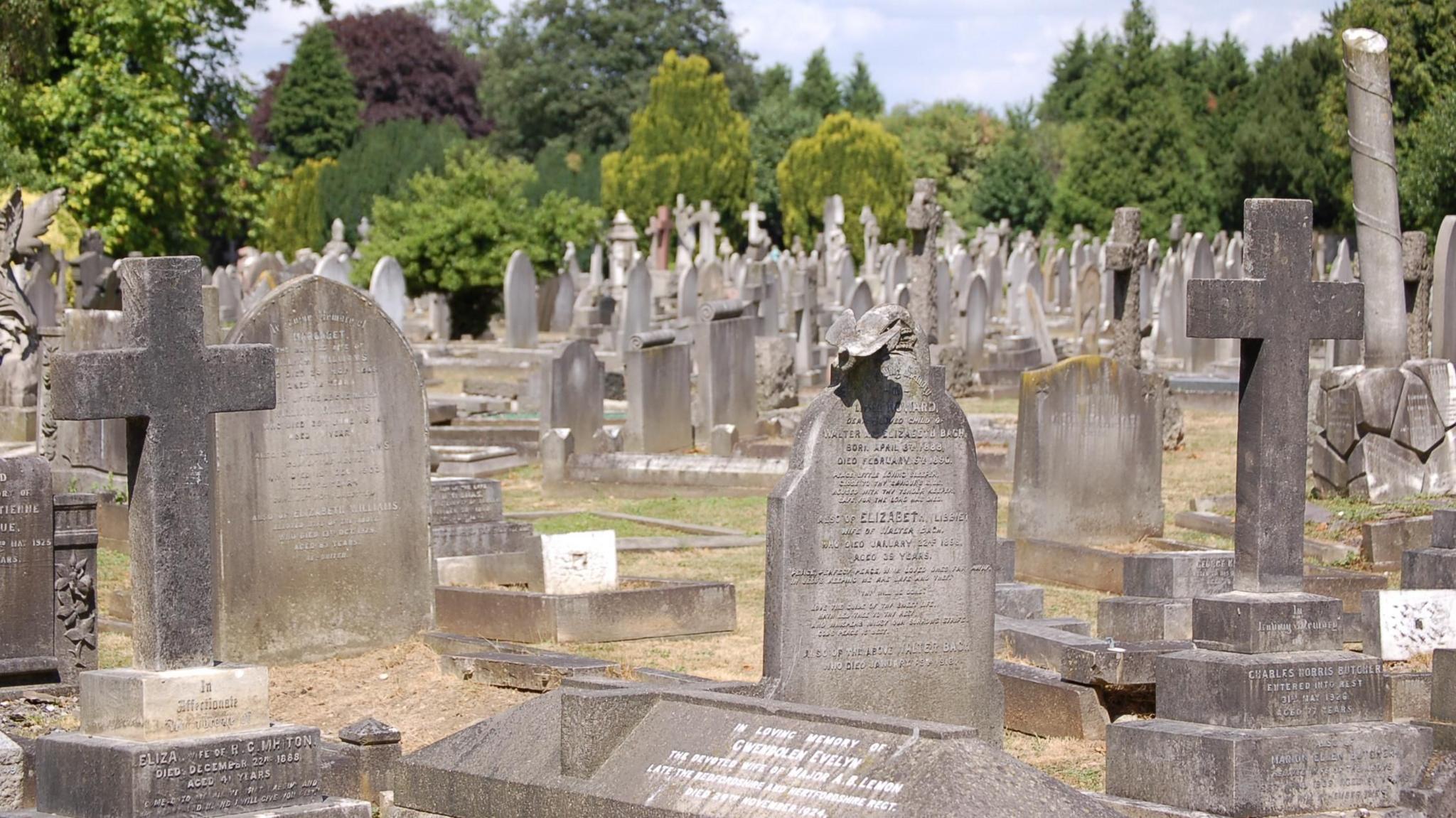
- Published20 June 2024
